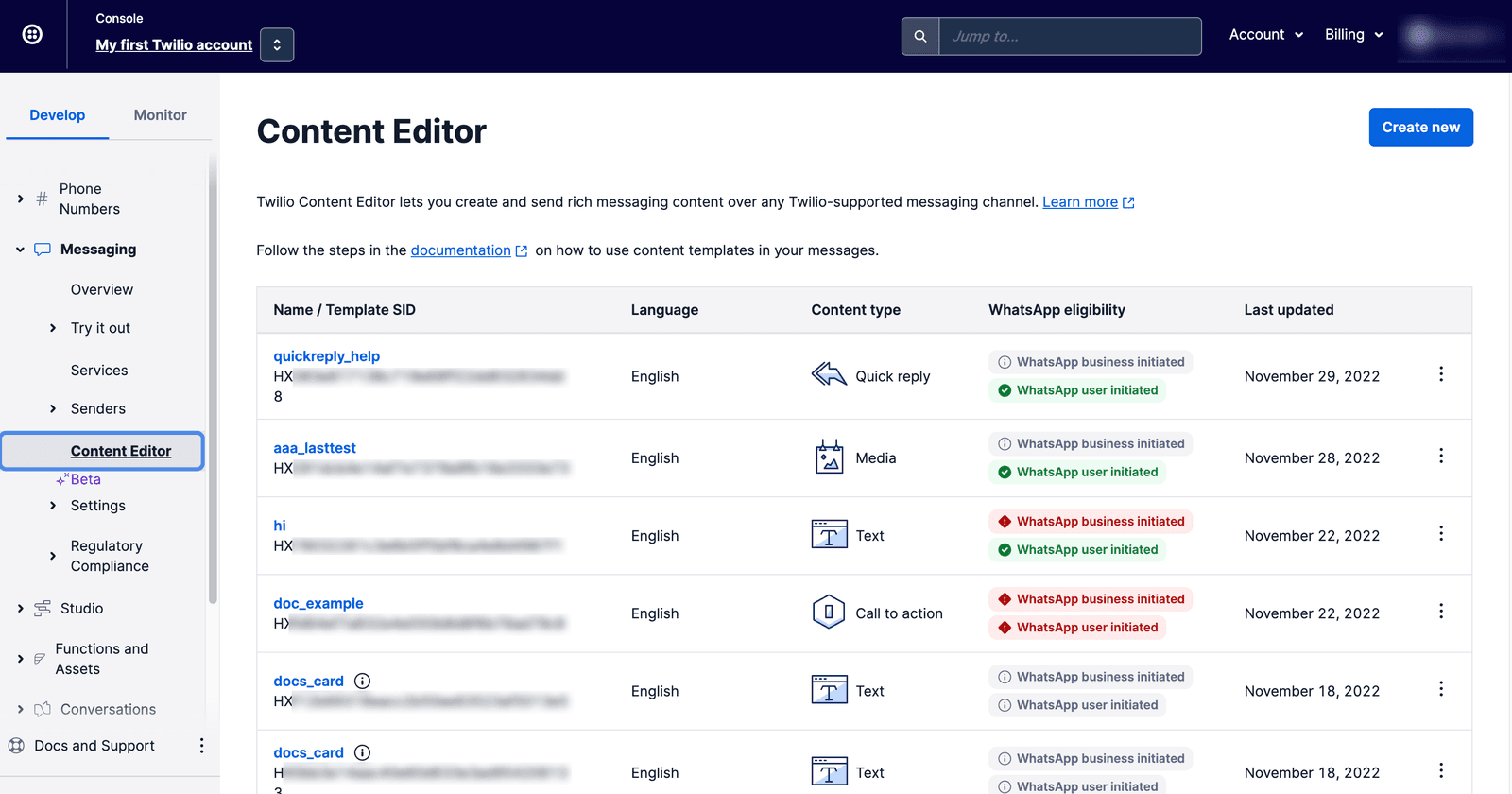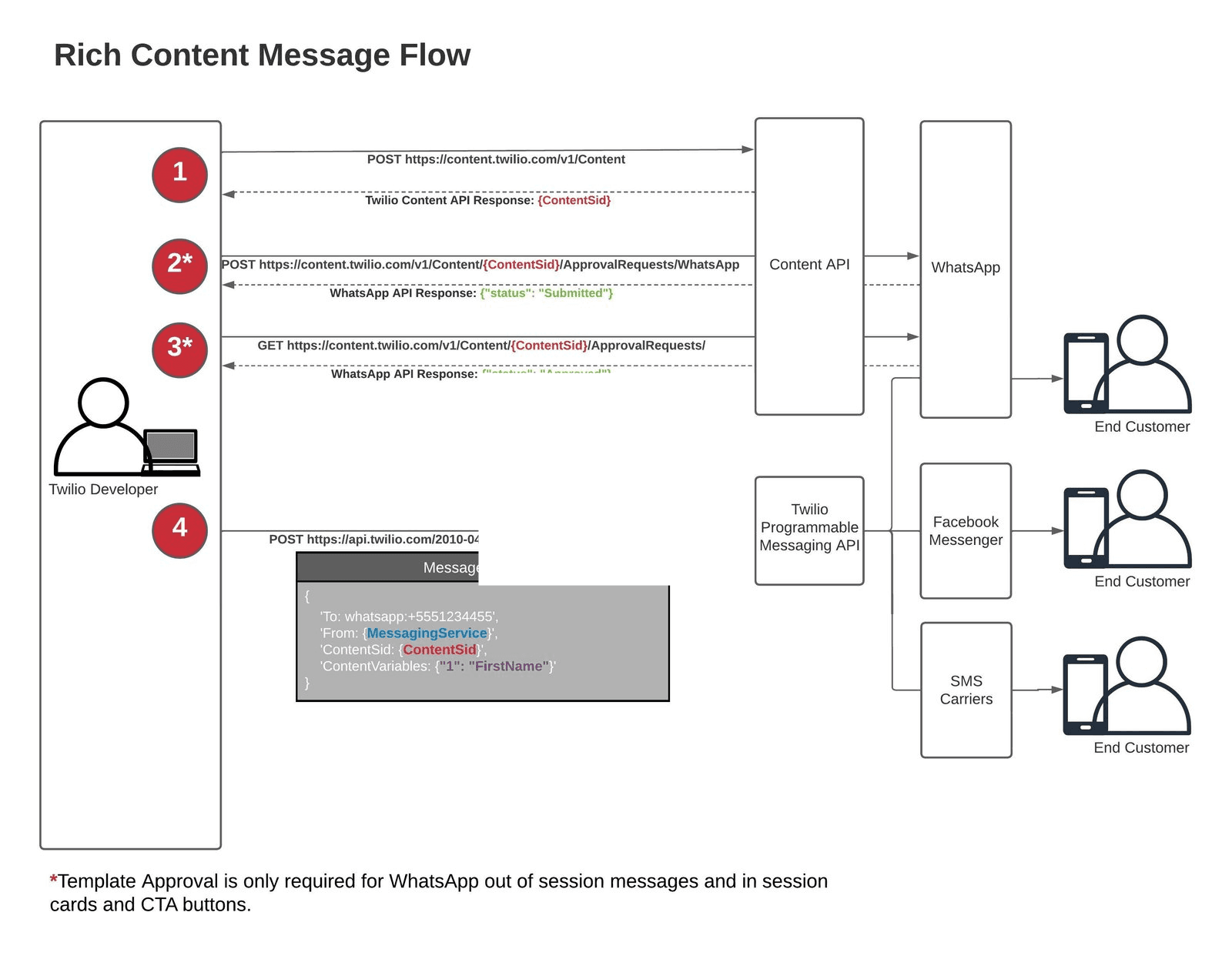Content Templates overview
The Content Template Builder is a Twilio product designed to create templated messages as well as messages with rich content. It has a graphical user interface built on top of a publicly accessible API. With the Content Template Builder, engineers and non-technical users can create, approve, and manage templates from the Twilio Console.
With the Content Template Builder, you can create templates more efficiently and accurately, allowing your entire team to contribute. Developers and non-technical users can build and submit templates for approval from the Twilio Console without writing a line of code.
The form-based template builder provides an interface to assist in the template creation process. The interface indicates which templates can be used on which channels and whether OTT provider approval is required to unlock additional capabilities. The product also helps reduce approval rejections from OTT providers by surfacing validations and suggestions as you compose templates.
The Console interface helps you determine approval statuses and important template details at a glance with color-coded status badges and labels. Additionally, templates created in the Content Template Builder within the Twilio Console are mirrored in the Content API and vice versa, allowing you to switch back and forth between products as needed.

As Twilio adds connectivity with new channels, we will continuously update Content Templates to support new senders, ensuring that your templates remain compatible. The Content products also facilitate template approvals required by WhatsApp to enable outbound messaging and rich features such as dynamic call-to-action buttons. The Content API's template management features allow enterprises to manage templates across teams and enable Independent Software Vendors (ISVs) to manage templates across thousands of customer accounts.
- Build rich content across multiple channels: SMS, MMS, Rich Communication Services (RCS), WhatsApp, Facebook Messenger
- Access rich features:
- RCS: Use rich cards, carousels, and more.
- WhatsApp: Use dynamic quick replies (in session), buttons with dynamic URLs, list messages, and more.
- Facebook Messenger: Use quick replies and call-to-action (CTA) buttons.
- Develop rich messaging faster:
- Use a single payload to send messages across all supported channels.
- Personalize content with dynamic variables that you can then substitute at runtime, for example
[name]. - Specify
Fallbackcontent types when rich content isn't supported. A single Content API template can hold multiple content types. For example, a template with both text and quick reply content types can be used to deliver quick reply button content to WhatsApp recipients and fallback to text content for SMS recipients.
- Manage WhatsApp templates at scale:
- Search your templates.
- Submit any eligible messaging content to WhatsApp for approval as a WhatsApp template.

To get started, review the Content API Quickstart.
See our guide for creating templates.
To learn about the types of templates you can create in the Content Template Builder and how to send them, see the Content Template Builder Reference section.